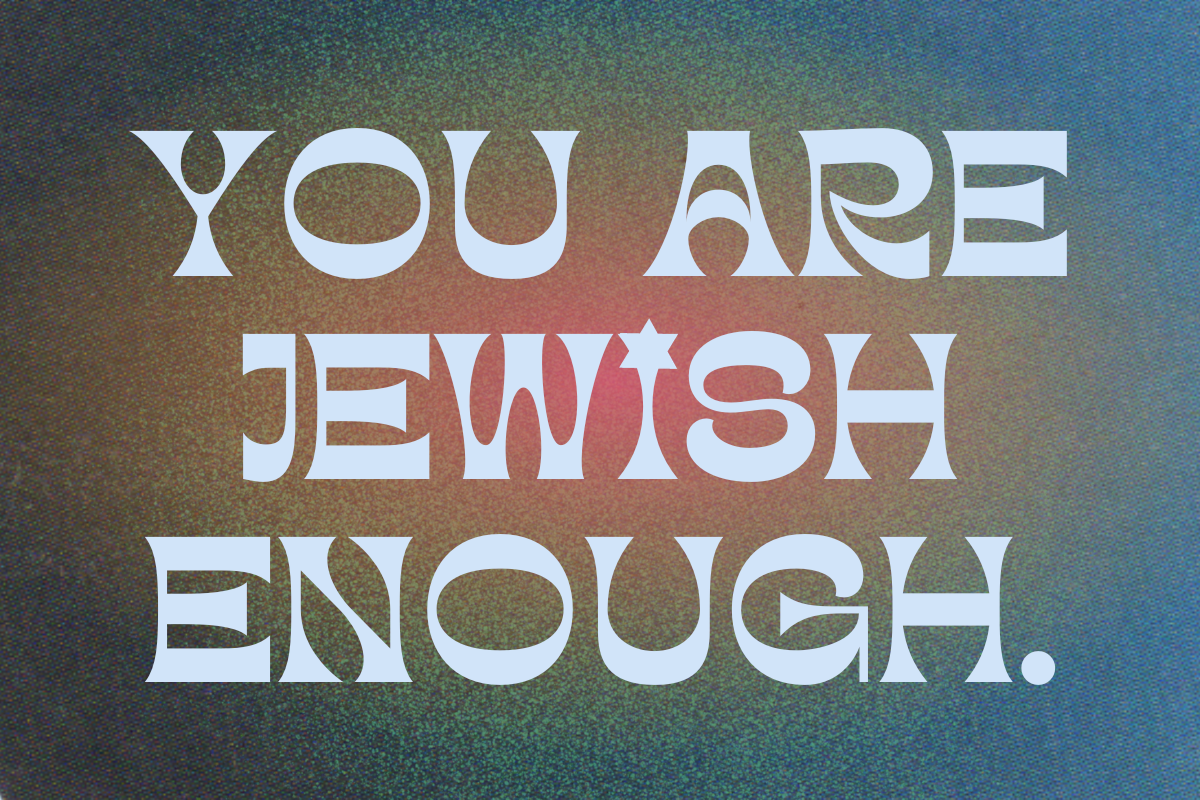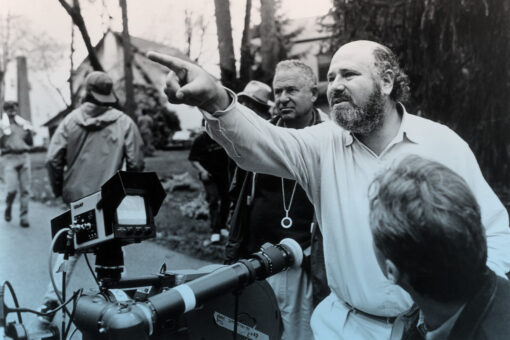I want to remind you of something: You are Jewish enough for this moment.
You are Jewish enough for this moment if you go to synagogue every Shabbat, if you keep kosher, if you can read and speak Hebrew, if you come from a line of rabbis going back generations, if your ancestors survived the Shoah or the Inquisition or any of the other attempted genocides we’ve faced, if you have a Jewish partner, if you wear a kippah and tzitzit, if you’ve got a name like Shira or Yitz.
And you are Jewish enough for this moment if you never go to synagogue, if you eat bacon- wrapped shrimp burgers with milk, if you can’t tell aleph from bet, if you’re the first Jew in your family, if none of your beloveds are Jewish, if you don’t own a single Jewish ritual garment, if you’ve got a name like Maria or Chris.
You are Jewish enough for this moment if you have no ties to Israel, if you support BDS, if you’ve never been to Jerusalem and never want to, if your ancestors got on a boat to New York or to Buenos Aires rather than Tel Aviv, if you would be stopped at Ben Gurion airport because your name is on a list.
And you are Jewish enough for this moment if you have deep ties to Israel, if you were born and raised there, if you hold citizenship, if you served in the IDF, if your parents are Israeli, if you made aliyah, if you know Ben Gurion airport as well as your local hub.
You are Jewish enough for this moment if you went to the march in DC last month and sang in solidarity with hundreds of thousands of other Jews on the National Mall.
And you are Jewish enough for this moment if you stopped traffic on the Manhattan Bridge last month and risked arrest to call attention to the massive civilian death toll in Gaza.
You are Jewish enough for this moment if you would do anything for a permanent ceasefire.
And you are Jewish enough for this moment if you support the war.
Let me be clear: I don’t support the way each individual Jew is responding to our current situation. I have views — strong ones — about the war, about individual and organizational Jewish reactions to the war, and about what Jewish law and values encourage as a moral response. And you are Jewish enough for this moment whether you agree with me or not.
Since October 7, I have witnessed the Jewish community responding to the crisis in Israel and Gaza in a multitude of ways, and I have seen the Jewish community responding to the responses in a multitude of ways. Sadly, while a number of Jews, including many Jewish leaders, are making space for Jews whose activism has taken them to opposite sides of protests, many Jews are responding to Jews holding different views with a great deal of anger. I’ve heard a lot of painful, vicious name-calling. Friends of mine who’ve made their views clear have been subject to all kinds of horrific rhetoric, from having their rabbinic credentials questioned to being called kapos.
Among all of the insults, there’s one that goes beyond cruel into utterly damaging for the full Jewish community: the accusation that certain Jews aren’t Jewish.
This isn’t exactly new. As a patrilineal Reconstructionist rabbi, I’ve been called “not Jewish” more than a few times, and I can’t tell you the number of stories I’ve heard about other Jews with marginalized identities, like Jews of Color, having their Judaism questioned. Certainly anti-Zionist Jews have faced this sort of attack for decades, but the frequency with which I’ve heard some Jews dismissed as not Jewish due to their political views in recent weeks is particularly troubling. It points to a deep-seated fear that I think many Jews have of being associated with those whose experiences with Israel and Palestine have led them to different conclusions. Some Zionist Jews who feel that anti-Zionism is an abandonment of Jews are willing to push anti-Zionist Jews outside the tent. Some anti-Zionist Jews who feel that Zionism is an abandonment of Jewish values are willing to form their own tent with no Zionists allowed.
To some degree, I understand the impulse. When we have disagreements this extreme — with some Jews calling for a continuation of war until Hamas is utterly destroyed, and others calling for an immediate and permanent ceasefire — there is enough of a values divide that, yes, of course it would be way easier to be able to control who counts as Jewish and who has surrendered their right to the tribe.
But here’s an inconvenient truth: Jews have no business telling other Jews that they aren’t Jewish enough. All that does is take a tiny population — 2.4% of the US and .2% of the world — and further shrink it until all that’s left is a population of people who agree on everything of import. Not exactly any kind of Jewish community I’ve ever known.
Here’s what we can do, though. We can question one another. We can pick apart one another’s arguments. We can share our views and experiences, and engage in deep listening even to voices with which we disagree. We can be open to having our minds changed by the arguments and experiences of other Jews.
In the Talmud, there’s a story about two scholars, Rabbi Yohanan and Resh Lakish, who loved each other dearly. (Yes, you absolutely can take it that way, but I digress.) When Resh Lakish grows ill and dies after years of studying with Rabbi Yohanan, Rabbi Yohanan’s new study partner is a man who agrees with him on every point. Rabbi Yohanan, rather than being grateful not to have to defend his views, rages that Resh Lakish would argue at every point he made, and it was through this exchange that both men came to deepen their learning.
Since October 7, and truly since long, long before that, too many of us have been talking past one another. The solution is not to declare Jews that disagree with us to be outside the tent. The solution is to be brave enough to invite them to learn with us. In this season of lighting up the darkness, may we have the courage to do just that.



